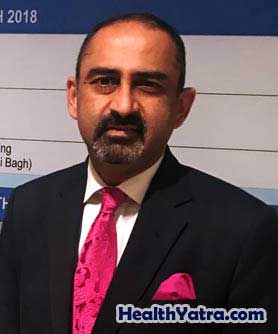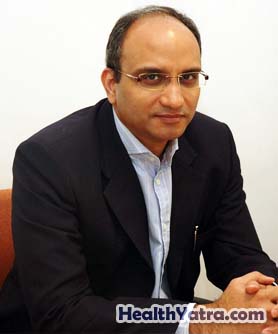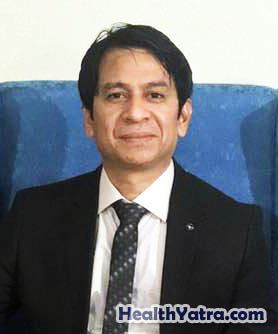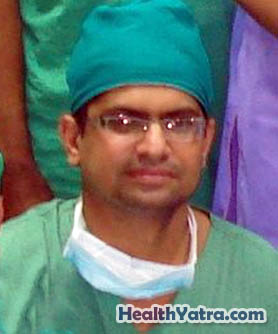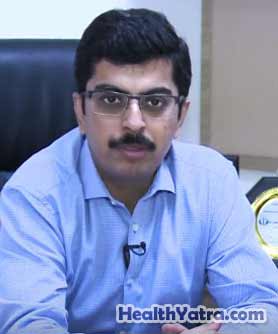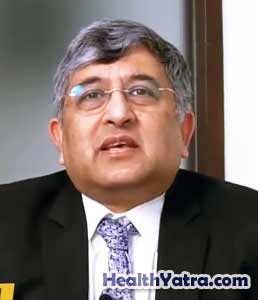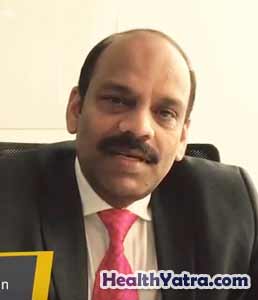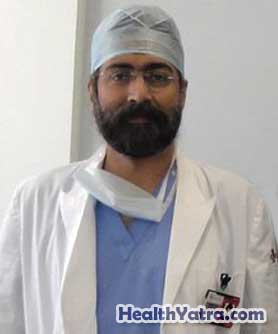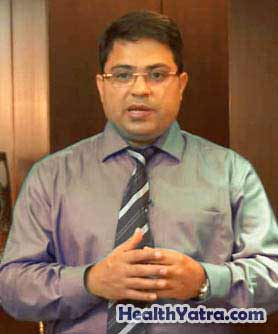Liver transplantation is a surgical procedure whereby a diseased or failing liver is either removed and replaced by a whole new liver from a deceased donor, or where part of a healthy liver from a living donor is removed and inserted to the failing liver of the recipient to encourage and promote growth of new and healthy liver cells. This 2nd type of transplant is sometimes called a split-liver transplant.
The recovery time varies but generally takes around 3 months. Thereafter, most recipients can lead a normal and active life, though most will require drugs for the remainder of their life to prevent the body’s immune system from rejecting the new liver.
OUR TREATMENT PACKAGES
We have listed a selection of treatment programmes for you to consider. These programmes are indicative and are designed per patient and so prices can vary according to patients condition and medical history.
PRICING FOR LIVER TRANSPLANT
Price Range for Liver Transplant in India ($): 40,000 – 65,000
Estimated UK Price for comparison ($): $4,50,000
Percentage Saving India to UK: 84%
DESCRIPTION OF LIVER TRANSPLANT
The liver is a large organ located in the upper abdomen, mainly on the right side. It has many hundreds of functions which are essential for our survival and well being. Some of its major roles are summarised below;
- Storing fuel for the body in the form of glycogen which is made from sugars such as glucose. When glucose is required by body cells, the liver breaks down glycogen, releasing glucose into the bloodstream.
- Processing fats and proteins obtained from food.
- The production of clotting factors. These are proteins which enable blood to clot.
- The safe processing and removal of alcohol.
- The safe processing of many poisons and toxins from the body.
- The processing of many medicines.
- The production of bile which is used to aid fat digestion in the gut.
- The production of plasma proteins (mainly albumin) which are essential for fluid regulation within blood and the circulatory system.
- The storage of elements and vitamins such as Vitamins A, D, E, K and iron.
- The production of some antibodies to aid natural immunity.
A normal and healthy liver has a large reserve. It can recover and repair itself from many conditions such as infections, the effects of drugs, alcohol and other toxins and trauma. However, when this reserve is stretched too far from disease or exposure to toxins, the liver gradually starts to fail as normal liver cells are destroyed. The liver may go through stages of damage from a reversible fatty change, to hepatitis (inflammation of the liver), to cirrhosis (an irreversible scarring of the liver) to cancer.
At most stages of these liver changes, other treatments are available and will generally be considered before transplantation. Therefore, a liver transplant will only be considered if these treatments are no longer effective or if liver damage is too advanced or irreversible and is a risk to life. The exact timing and decision to undergo transplantation is a complex one, requiring the opinion of liver specialists and transplant surgeons. Some factors which may influence a decision include;
- The general health of the patient other than their liver disease,
- The age, shape and size of the patient,
- The patients mental and emotional state,
- The presence of cancer in other organs,
- The presence of infections, especially infections such as HIV,
- The availability of organs for transplant.
The assessment of the patient involves many tests such as blood tests, infection screens, x-rays, ultrasound scans, other types of scans such as CT or MRI and liver biopsies. This assessment will usually necessitate a hospital stay. In the UK and other EC countries, if a transplant is deemed necessary the patient is placed on a waiting list for a suitable donor. This wait may be as little as a few hours but may last several years. A suitable liver will be one which is matched to the recipient by blood grouping and by the shape and size of the donor. The recipient must be available to receive the donor liver within only a few hours since generally organs can be kept for approximately 20 hours after the removal from the donor.
The surgery itself is done under general anaesthetic. Once the patient is asleep 2 or 3 drainage tubes are inserted around the liver to drain excess blood and fluid during the operation. An incision along the patient’s upper abdomen, just below the ribs, is made through which the diseased liver is removed. The new donor liver is then placed in the upper abdomen and “plumbed in” by connecting the arteries and veins that take blood to and from the liver. The bile ducts are also connected. The whole procedure takes approximately 6-10 hours. The recipient will then spend approximately 2 days in intensive care following surgery. Providing all is well the recipient will then be moved to a less intensive ward with a total stay in hospital of approximately 3 weeks. However, during this time the patient is closely monitored for signs of infection or rejection by the immune system.
The results of this procedure have been improving with time. Currently, there is a 90% one year survival rate. Most problems arise within the first 3 months of transplantation from either infection or rejection of the new liver by the body’s immune system. Drugs called immunosuppressants are required for the rest of the patient’s life to weaken the immune system and therefore to prevent possible rejection. However, as an effect of weakening the immune system the recipient is at higher risk of developing infections. It is possible to reduce the dose of these immunosuppressants over time.
Unfortunately, despite the use of immunosuppressant drugs chronic rejection of the liver may occur. In this instance other drugs may be required but often a second transplant is the only solution. Very occasionally the transplanted liver fails to function completely. A second transplant is again the only solution.
Liver transplantation for UK citizens only
For UK citizens a referral to a dedicated liver unit is usually made when a serious liver condition is diagnosed. A decision on transplantation is then taken in the way described above. If a transplant is deemed necessary the patient is entered into the liver transplant waiting list which is held by the National Health Service (“NHS”) at certain centres in the UK. Although the actual transplantation procedure is therefore not done privately, the process of assessment may be done by the NHS or by the private sector. The actual surgery and recovery is as described above.
Liver transplantation for non-UK citizens
In the UK most whole livers from deceased donors are transplanted into those patients on the NHS waiting list. Therefore recipients are generally UK or EC citizens. However, if a donor liver becomes available but no suitable patient from the waiting list is found then it may be offered to non-UK or non-EC citizens.
In the case of donation by a living donor, the donor is usually a healthy family member who has the same blood group as the patient. The donor must be aged 21 years or more and should have no liver disease or any other chronic medical problems. The living donor has a portion of their healthy liver removed for transplantation to the recipient. Clearly this entails a surgical procedure for the donor also and the risks of this need to be discussed with the donor in person by the transplant team. The advantage of having a transplant from a living donor is that providing the donor is otherwise suitable, a date for surgery can be agreed at a time that is convenient to all parties. This is done in the UK in the private sector. Generally at the initial consultation as many results from any assessments done in the patient’s home country as possible should be brought to the UK. Specifically, results of blood grouping tests for both donor and recipient should be available.
MEDICAL FACTS
How You Will Feel: Liver Transplants are major operations with intense recovery periods that require dedication from patients and families and great skill from the clinical staff. They must care for both recipient and donor and provide both the medical support as well as the emotional and psychological understanding to ensure long term success of the procedure.
How Long Will you stay in Hospital after your Liver Transplant?
30 Days as inpatient
What to do next: We specialise in providing medical care and surgery abroad. We only work with medical institutions that we have inspected and checked. We offer Liver Transplant in both North and South India as well as facilitation on all the other elements in your journey such as flights, accommodation and activities. Our team in India operate as your personal agents while you are in country and is tasked with supporting you in any way you need.
We work with hospitals across the Indian Cities Delhi, Mumbai, Chennai, Hyderabad and Bangalore. to provide our patients with the most appropriate levels of care and treatment
We have teams in India who manage your stay and provide you with support whenever you need it. Please contact us to find out how we can help you. Contact us even if you are at the early stages of considering the possibility of treatment abroad.
WHY TRAVEL FOR LIVER TRANSPLANT
Travelling abroad for Liver Transplant can give you access to top quality health care quickly and cheaply. Our mission is to make your journey absolutely successful – in terms of treatment, in terms of outcomes and in terms of experience. We offer treatment in a wide range of locations including Delhi, Mumbai, Chennai and Bangalore.
MAKE AN ENQUIRY TO GLOBE FOR LIVER TRANSPLANT
Please feel free to post an enquiry to us at Globe if you are interested in having more details of how this all works and how we might be able to help you. Your information is treated as strictly confidential by us. We ask that you fill in the fields with the red stripes if possible. You can also contact us directly with details from our contact us page.
If you want to speed up the process or have a complex history that is specifically relevant to any further steps: please use our detailed medical questionnaire which includes a range of questions to capture details of your medical history and present condition. Please note that we share these details anonymously with clinical specialists for the purposes of considering your case and advising on a treatment plan. This means that we do not pass on your name or address details until you choose to proceed further with us.




